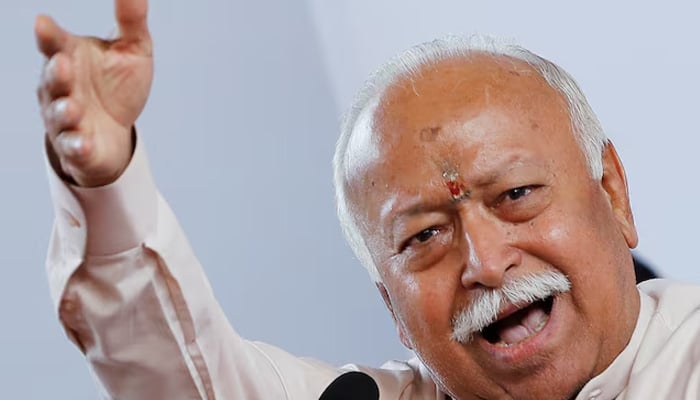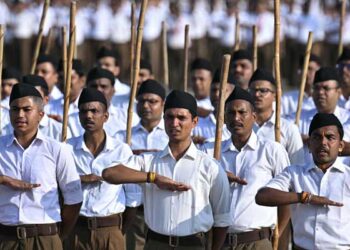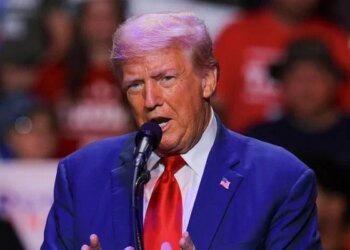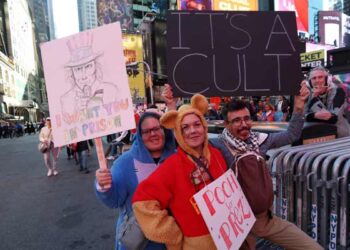Select Language:
Mohan Bhagwat, leader of the Rashtriya Swayamsevak Sangh (RSS), the prominent Hindu nationalist organization, gestured as he addressed a press conference in New Delhi on November 9, 2019. — Reuters
– Declining birth rates present demographic challenges.
– Bhagwat urges for a population balance that is “controlled, yet sufficient.”
– The RSS leader encourages Muslims to overcome fears and foster mutual trust.
—
NEW DELHI: The leader of India’s influential Hindu nationalist group, the Rashtriya Swayamsevak Sangh (RSS), emphasized that Indian families should aim for three children each, warning about the potential long-term risks associated with decreasing birth rates. Currently, with a population of 1.46 billion, India remains the world’s most populous country. However, according to the UN Population Fund’s 2025 report, the fertility rate has fallen below two children per woman, even as the economy continues to grow.
Bhagwat, who heads the RSS—the ideological backbone of Prime Minister Narendra Modi’s Bharatiya Janata Party—stressed the importance of maintaining a “controlled, yet sufficient” population. Speaking during a lecture commemorating the RSS’s 100th anniversary, he suggested that “for the nation’s interest, every family should have three children and limit themselves accordingly.” His appeal for larger families underscores concerns among nationalist leaders and regional politicians about the country’s demographic stability, national capacity, and cultural preservation.
For years, hardline Hindu groups have pointed to higher birth rates among minority communities like Muslims as a concern, although data indicates that Indian Muslim populations are also experiencing fewer children than in the past. Bhagwat acknowledged that birth rates are declining across religious groups.
While the RSS officially promotes itself as a cultural organization dedicated to Hindu values, it wields significant influence through an extensive network of affiliates and millions of grassroots volunteers. Many senior ministers in Modi’s cabinet, including the prime minister himself, are long-time RSS members. Analysts note that BJP’s policy stances—from cultural and educational reforms to citizenship laws—often echo the views held by the RSS, making it one of the most powerful civil society organizations globally.
Bhagwat dismissed accusations that the RSS harbors anti-Muslim intentions. He stated that the organization views all minorities as integral parts of India. “Our ancestors and our culture are one. While worship practices may differ, our identity remains united. Changing religion does not alter one’s community,” he explained. “Mutual trust must be built on all sides. Muslims need to overcome their fears and realize that working together does not threaten their religion.”







